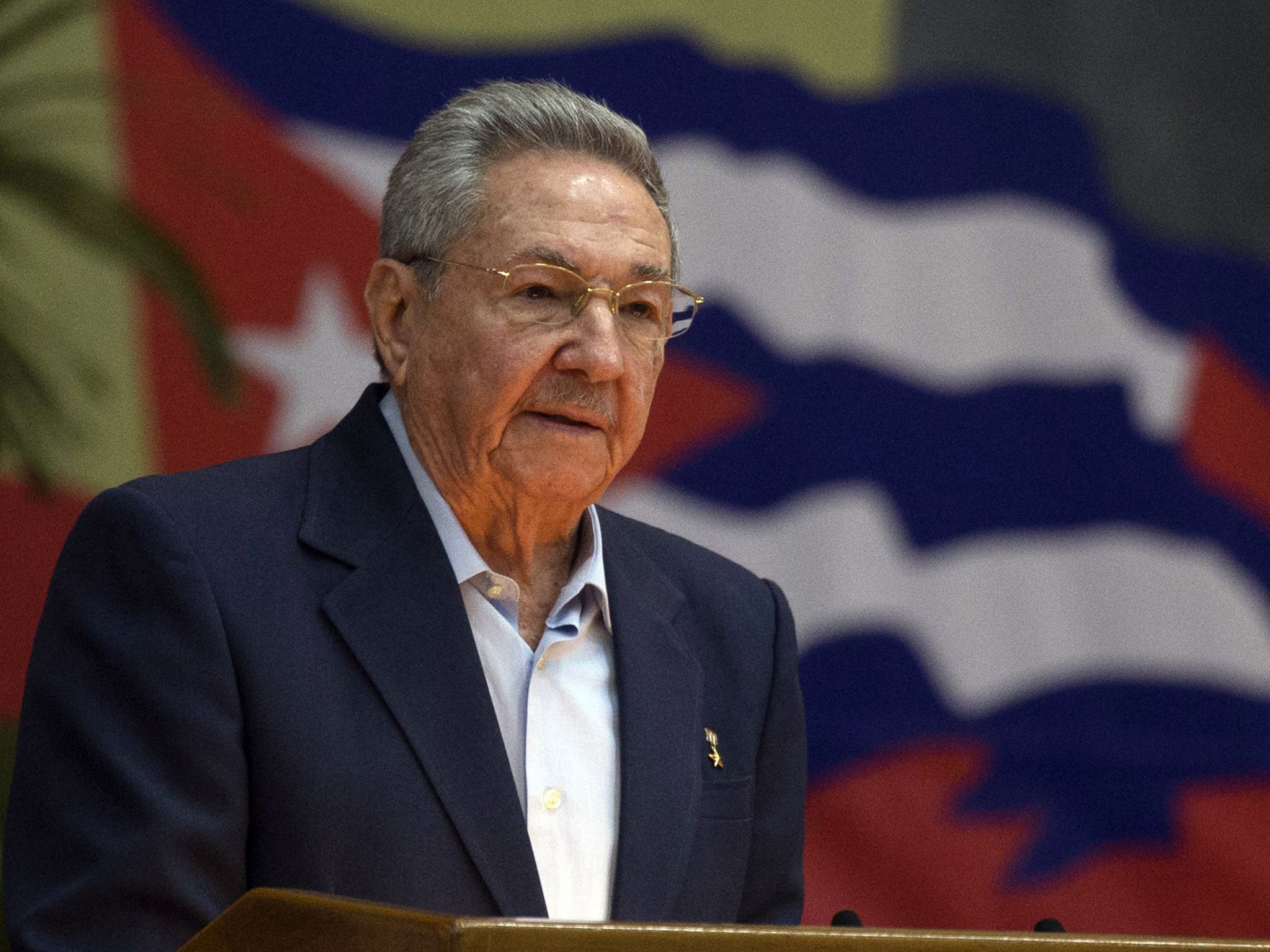Cuba will continue to normalise US relations 'despite recent setback', says President Castro
Cuban president Raul Castro also rejected any "lessons" on human rights offered by the US after Donald Trump's comments on the issue

Your support helps us to tell the story
From reproductive rights to climate change to Big Tech, The Independent is on the ground when the story is developing. Whether it's investigating the financials of Elon Musk's pro-Trump PAC or producing our latest documentary, 'The A Word', which shines a light on the American women fighting for reproductive rights, we know how important it is to parse out the facts from the messaging.
At such a critical moment in US history, we need reporters on the ground. Your donation allows us to keep sending journalists to speak to both sides of the story.
The Independent is trusted by Americans across the entire political spectrum. And unlike many other quality news outlets, we choose not to lock Americans out of our reporting and analysis with paywalls. We believe quality journalism should be available to everyone, paid for by those who can afford it.
Your support makes all the difference.Cuban President Raul Castro denounced President Donald Trump's tougher line on relations with Havana on Friday, calling it a setback but promising to continue working to normalise ties between the former Cold War rivals.
Castro's comments to Cuba's National Assembly were his first on Trump's June announcement of a partial rollback of the Cuba-US detente achieved by then-President Barack Obama. They contained echoes of the harsh rhetoric of the past.
"Any strategy that seeks to destroy the revolution either through coercion or pressure or through more subtle methods will fail," Cuba's president told legislators.
He also rejected any "lessons" on human rights from the US, saying his country "has a lot to be proud about" on the issue.
Surrounded by Cuban-American exiles and Cuban dissidents in Miami, Trump announced last month that the US would impose new limits on US travellers to the island and ban any payments to the military-linked conglomerate that controls much of the island's tourism industry. He said the US would consider lifting those and other restrictions only after Cuba returned fugitives and made a series of other internal changes including freeing political prisoners, allowing freedom of assembly and holding free elections.
Trump's policy retained elements of Obama's reforms but tightened restrictions on travel and employed harsh rhetoric on human rights.
On Friday in Washington, the Trump administration said it was suspending for another six months a provision of the US embargo on Cuba.
The State Department said it told Congress that it will keep suspending a provision of the Helms-Burton Act that deals with property seized from Americans. The provision lets Americans use US courts to sue non-American companies that operate and deal with property confiscated after Fidel Castro's revolution.
Speaking to the National Assembly, Castro called the Trump administration's policies a "setback," though he reiterated his government's position that it would work to normalise relations with Washington.
Earlier in the legislative session, Economy Minister Ricardo Cabrisas announced that Cuba's economy is growing again after a dip last year.
Cabrisas said the economy grew around 1 percent in the first half of 2017. That puts GDP growth on track to hit 2 percent for the year.
The government said the economy shrank last year by 1 percent amid falling support from troubled Venezuela. That was the first decrease reported in two decades. Cabrisas said that instability in the supply of Venezuelan oil weighs on the country but tourism, construction, transportation and communications were growing.
Associated Press
Join our commenting forum
Join thought-provoking conversations, follow other Independent readers and see their replies
Comments